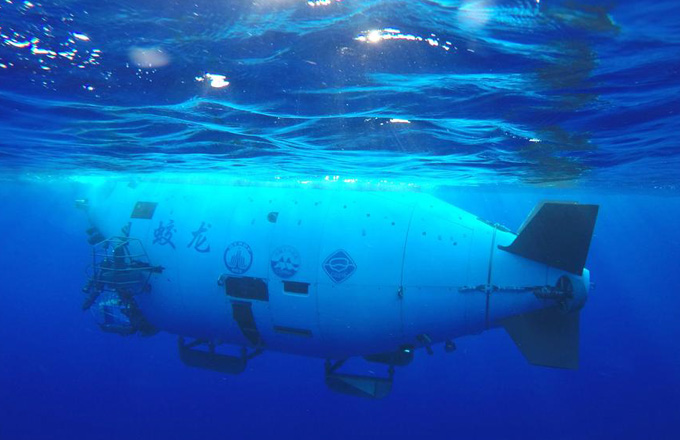

China has no intention to compete with others and take the lead in space, said a senior official with the manned space program.
China's manned space program aims to build a space station by 2020, the year the International Space Station is due to be taken out of service, according to previous reports.
|
 |
Wang Zhaoyao, director-general of China Manned Space Agency, told a news conference on Friday: "It is too early to say there will only be China's space station in space, because the International Space Station's lifespan can be extended."
Wang said China does not seek to compete in space with other nations.
"We develop the manned space program just to satisfy our own needs," he said.
As for why China needs a manned space program, he said it is regarded as "a symbolic project", which presents a country's comprehensive power, and concerns a nation's future development.
He cited Deng Xiaoping, China's late leader, as saying that China would not become an influential country and gain international status if it had not experimented with the atomic bomb and hydrogen bomb in the 1960s and launched satellites later.
"The manned space program is also indispensable for a big country," he said, adding that it will boost people's pride, scientific development and skills.
"But as we celebrate the success, we also realize the fact that there is still a gap between China and the leading countries in the field of manned space technology," he said.
Qi Faren, a senior space scientist who designed the Shenzhou spacecraft, agreed.
"China's progress in space is fast, but it has not surpassed the leading countries in the field of manned spaceflight."
In his view, China has yet to become a space power.
"A space power requires a country to have the ability to enter space, build and maintain space infrastructure that can operate for long durations, and protect its space infrastructure from being damaged or disrupted," he said in an interview with China Newsweek magazine.
For example, China can only send 10 metric tons of payloads to low-Earth orbit and 5 tons of payloads to geosynchronous orbit, and its carrier rockets' capability is insufficient if China wants to assemble a space station now, he said.
The leading countries in space, such as the United States and Russia, already have the ability to send payloads of 25 tons or more to low-Earth orbit, he said.
At present, Chinese scientists are developing such a rocket, and construction of a launch site in southern China's Hainan province is also under way.
The country has entered a period of frequent space launches. Since 2006, Long March carrier rockets have been involved in nearly 70 missions.
But Qi said China's frequent space exploration activities should not concern other countries.
According to him, the two leading space powers combined have conducted nearly 6,000 launches since human exploration of space started in 1957, while China has only conducted around 160 launches.
The 79-year-old veteran scientist said he hoped that Chinese astronauts can walk on the moon one day.
"There are objections (against sending men to moon), because the United States has been there. Do we still need to go there? I think, since we have not been there, we should go there once," he said.
Responding to calls from other experts that China should send a manned mission to Mars, Qi said: "We should walk step by step.
"If we have not been to a place 380,000 kilometers away, how can we reach somewhere 400 million km away?" he said, adding that whether China should take a small step or a big step is a question that should be fully discussed.
But no matter what, he said that China should not rely on others to do this.
"I remember clearly what the four scientists who initiated the 863 Program (the State High-Tech Development Plan, of which the manned space program is a part) said.
"Only those who can make the right judgment of the world's trend will gain an advantage in future competition. And high-tech can never be bought. China has to count on itself to develop high-tech," he said.
xindingding@chinadaily.com.cn













